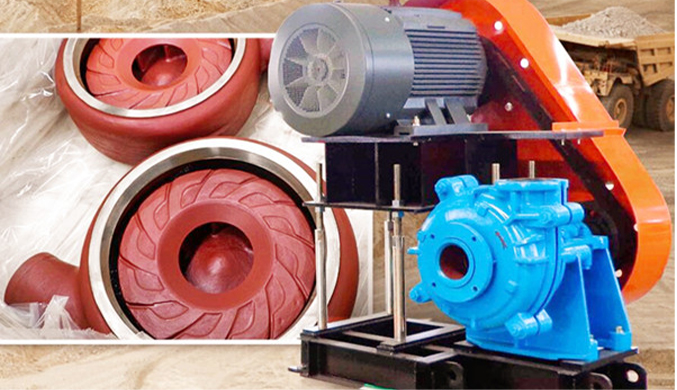English
- Afrikaans
- Albanian
- Amharic
- Arabic
- Armenian
- Azerbaijani
- Basque
- Belarusian
- Bengali
- Bosnian
- Bulgarian
- Catalan
- Cebuano
- Corsican
- Croatian
- Czech
- Danish
- Dutch
- English
- Esperanto
- Estonian
- Finnish
- French
- Frisian
- Galician
- Georgian
- German
- Greek
- Gujarati
- Haitian Creole
- hausa
- hawaiian
- Hebrew
- Hindi
- Miao
- Hungarian
- Icelandic
- igbo
- Indonesian
- irish
- Italian
- Japanese
- Javanese
- Kannada
- kazakh
- Khmer
- Rwandese
- Korean
- Kurdish
- Kyrgyz
- Lao
- Latin
- Latvian
- Lithuanian
- Luxembourgish
- Macedonian
- Malgashi
- Malay
- Malayalam
- Maltese
- Maori
- Marathi
- Mongolian
- Myanmar
- Nepali
- Norwegian
- Norwegian
- Occitan
- Pashto
- Persian
- Polish
- Portuguese
- Punjabi
- Romanian
- Russian
- Samoan
- Scottish Gaelic
- Serbian
- Sesotho
- Shona
- Sindhi
- Sinhala
- Slovak
- Slovenian
- Somali
- Spanish
- Sundanese
- Swahili
- Swedish
- Tagalog
- Tajik
- Tamil
- Tatar
- Telugu
- Thai
- Turkish
- Turkmen
- Ukrainian
- Urdu
- Uighur
- Uzbek
- Vietnamese
- Welsh
- Bantu
- Yiddish
- Yoruba
- Zulu
Telephone: +86 13120555503
Email: frank@cypump.com
Nov . 16, 2024 22:18 Back to list
self priming wastewater pump
Self-Priming Wastewater Pumps An Essential Solution for Waste Management
In the realm of wastewater management, the efficiency and reliability of pumping systems are critical. Among the various types of pumps used in wastewater applications, self-priming pumps have gained significant attention for their unique ability to handle challenging conditions. This article explores the importance of self-priming wastewater pumps, their operational principles, advantages, and applications.
Understanding Self-Priming Pumps
Self-priming pumps are designed to evacuate air from the pump casing and suction line, allowing them to draw fluid without the need for manual priming. This feature makes them ideal for applications where the pump may not be submerged in the fluid. Typically, self-priming pumps utilize a centrifugal mechanism that facilitates an uninterrupted flow, making them suitable for handling wastewater that contains solid particles, debris, and other contaminants.
The Operational Principles
The operation of a self-priming wastewater pump is based on a simple yet effective principle. When the pump is started, it creates a vacuum that allows air to be removed from the suction line and pump casing. This vacuum pressure enables the liquid to rise into the pump. Once the pump is filled with liquid, it begins to function like a standard centrifugal pump. The combination of air and liquid within the hydraulic chamber is then expelled, while the continuous rotation of the impeller generates the necessary pressure to move the wastewater forward.
Advantages of Self-Priming Wastewater Pumps
1. Ease of Use One of the most significant advantages of self-priming pumps is that they eliminate the need for manual priming. This ease of operation minimizes labor costs and reduces the risk of damage from improper priming.
2. Versatility Self-priming pumps can handle a variety of fluids, including those with higher solid content. This versatility allows them to be utilized in various applications, from municipal wastewater treatment facilities to industrial settings where solids management is a concern.
3. Energy Efficiency These pumps are designed to operate efficiently, minimizing energy consumption. Their ability to self-prime means fewer energy-intensive operations are required, which translates to cost savings over time.
self priming wastewater pump

5. Compact Design Many self-priming pumps are designed with a compact footprint, making them suitable for installations with limited space. This compactness does not compromise performance but rather enhances operational flexibility.
Applications in the Real World
Self-priming wastewater pumps find their applications in several sectors, including
- Municipal Wastewater Treatment They are employed in sewage treatment plants to efficiently move wastewater from collection points to treatment facilities.
- Construction These pumps are used to manage dewatering tasks at construction sites, ensuring that water accumulation does not hinder progress.
- Agricultural Uses Farmers utilize self-priming pumps for irrigation or waste management in farming operations.
- Industrial Processes Manufacturing facilities often require reliable wastewater handling solutions that can cope with the diverse types of waste generated in production lines.
Conclusion
Self-priming wastewater pumps play a vital role in modern waste management systems. Their ease of use, versatility, energy efficiency, and robust design make them an indispensable tool in various industries. As the demand for effective wastewater solutions continues to grow, the importance of self-priming pumps will undoubtedly remain a cornerstone of sustainable waste management practices. Investing in reliable self-priming wastewater pumps not only improves operational efficiency but also contributes to environmental conservation efforts by ensuring that wastewater is handled appropriately and responsibly.
-
ISG Series Vertical Pipeline Pump - Chi Yuan Pumps Co., LTD.|High Efficiency, Energy Saving, Low Noise
NewsJul.30,2025
-
ISG Series Vertical Pipeline Pump- Chi Yuan Pumps|High Efficiency&Low Noise
NewsJul.30,2025
-
ISG Series Vertical Pipeline Pump-Chi Yuan Pumps Co., LTD.|High Efficiency&Energy Conservation
NewsJul.30,2025
-
ISG Series Vertical Pipeline Pump - Chi Yuan Pumps Co., LTD.|Advanced Hydraulic Design&Energy-Efficient Solutions
NewsJul.30,2025
-
ISG Series Vertical Pipeline Pump - Chi Yuan Pumps Co., LTD.
NewsJul.30,2025
-
ISG Series Vertical Pipeline Pump - Chi Yuan Pumps Co., LTD.|energy-efficient fluid handling&industrial durability
NewsJul.30,2025










